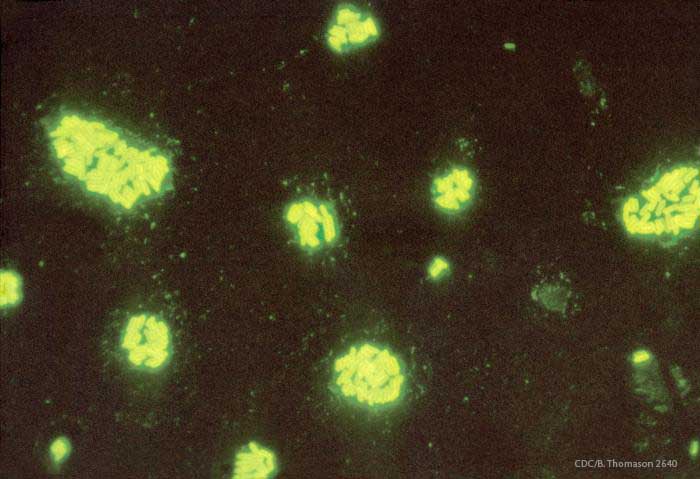If you contracted Salmonella poisoning after taking Kratom, you may have a lawsuit against the manufacturer, and possibly others. You can contact our Salmonella lawyers for a free consultation to find out if you have a case and can sue for compensation.
“It is usually in the best interest of people who contract Salmonella from dietary supplements to sue all of the companies in the product’s chain of distribution.”Attorney Fred Pritzker
Updated Information: As of February 28, 2018, the CDC reports that 40 people in 27 states are infected with Salmonella I 4,[5],12:b:-. Fourteen people have been hospitalized. Interviews with ill people are continuing. So far, 17 of 24 ill people reported consuming kratom before getting sick. The outbreak strain of Salmonella I 4,[5],12:b:- has also been identified in two samples of leftover kratom powder collected from ill people in North Dakota and Utah, providing further evidence of kratom as the likely source of the outbreak.
Kratom-Associated Salmonella Outbreak
In addition to the risks that kratom poses as an opioid-like substance, it has also been linked to a current Salmonella outbreak in 20 states: Alabama, Arizona, California, Colorado, Florida, Kansas, Kentucky, Louisiana, Massachusetts, Michigan, North Carolina, North Dakota, New York, Ohio, Oklahoma, Oregon, Pennsylvania, South Carolina, Tennessee, and Utah.
At least 28 people have contracted Salmonella 1 4,[5],12:b:- food poisoning infections since October 13, 2017; 11 have been hospitalized, but no deaths have been reported. Of these victims, 73% of those who were interviewed by the Centers for Disease Control (CDC) said that they had consumed kratom, either in the form of pills or as powder or tea:
“At this time, CDC recommends that people not consume kratom in any form. The investigation indicates that kratom products could be contaminated with Salmonella and could make people sick. CDC’s recommendation may change as more information becomes available. This investigation is ongoing …”

Salmonella is a dangerous form of food poisoning that can lead to complications including Salmonella meningitis, sepsis, severe Salmonella colitis, pancreatitis, and heart damage.

Contact Pritzker Hageman Law Firm for Help
Kratom Recall Lawsuit
In a sweeping recall, The Food and Drug Administration (FDA) has called for the voluntary recall and destruction of dietary supplements that contain kratom, a plant used by many to curb their opioid dependency. These supplements were distributed across the nation by Divinity Products Distribution, a company based in Grain Valley, Missouri, under the brand names “Botany Bay,” “Divinity,” and “Enhance Your Life.” This recall comes as part of a larger effort by the FDA to halt the import and sale in the United States of all dietary products containing kratom until the substance can be further studied.
Kratom (Mitragyna speciosa), a stimulant grown and used as an opioid substitute in Indonesia, Malaysia, Papua New Guinea, and Thailand, has come under intense scrutiny after being introduced into the American market. Also known as “Biak,” “Kakuam,” “Ketum,” “Thang,” or “Thom,” its leaves are chewed, smoked, brewed into tea, or ingested in capsule form, either for recreational use or by people trying to self-medicate conditions like depression, pain, anxiety, or opioid addiction. It is currently listed on the FDA’s “Drugs of Concern” list as a substance that, while not regulated by the Controlled Substances Act, may still be harmful to people who abuse it.
Kratom-Associated Deaths
The FDA first began to voice its concern about kratom use on November 14, 2017, when FDA Commissioner Scott Gottlieb, M.D., issued a public health advisory regarding the use of kratom to treat opioid withdrawal:
“There’s clear data on the increasing harms associated with kratom. Calls to U.S. poison control centers regarding kratom have increased 10-fold from 2010 to 2015, with hundreds of calls made each year. The FDA is aware of 36 deaths associated with the use of kratom-containing products. There have been reports of kratom being laced with other opioids like hydrocodone. The use of kratom is also associated with serious side effects like seizures, liver damage and withdrawal symptoms.”
In the same announcement, Dr. Gottlieb notes that kratom has already been declared a controlled substance in 16 countries, including Malaysia and Thailand. In the United States, its use has been banned by the states of Alabama, Arkansas, Indiana, Tennessee, and Wisconsin; other states have similar legislation pending.
Since this initial press release, eight additional deaths have been associated with kratom, bringing the total to 44.
Our law firm has investigated liver damage from other dietary supplement products not associated with this product or this outbreak.